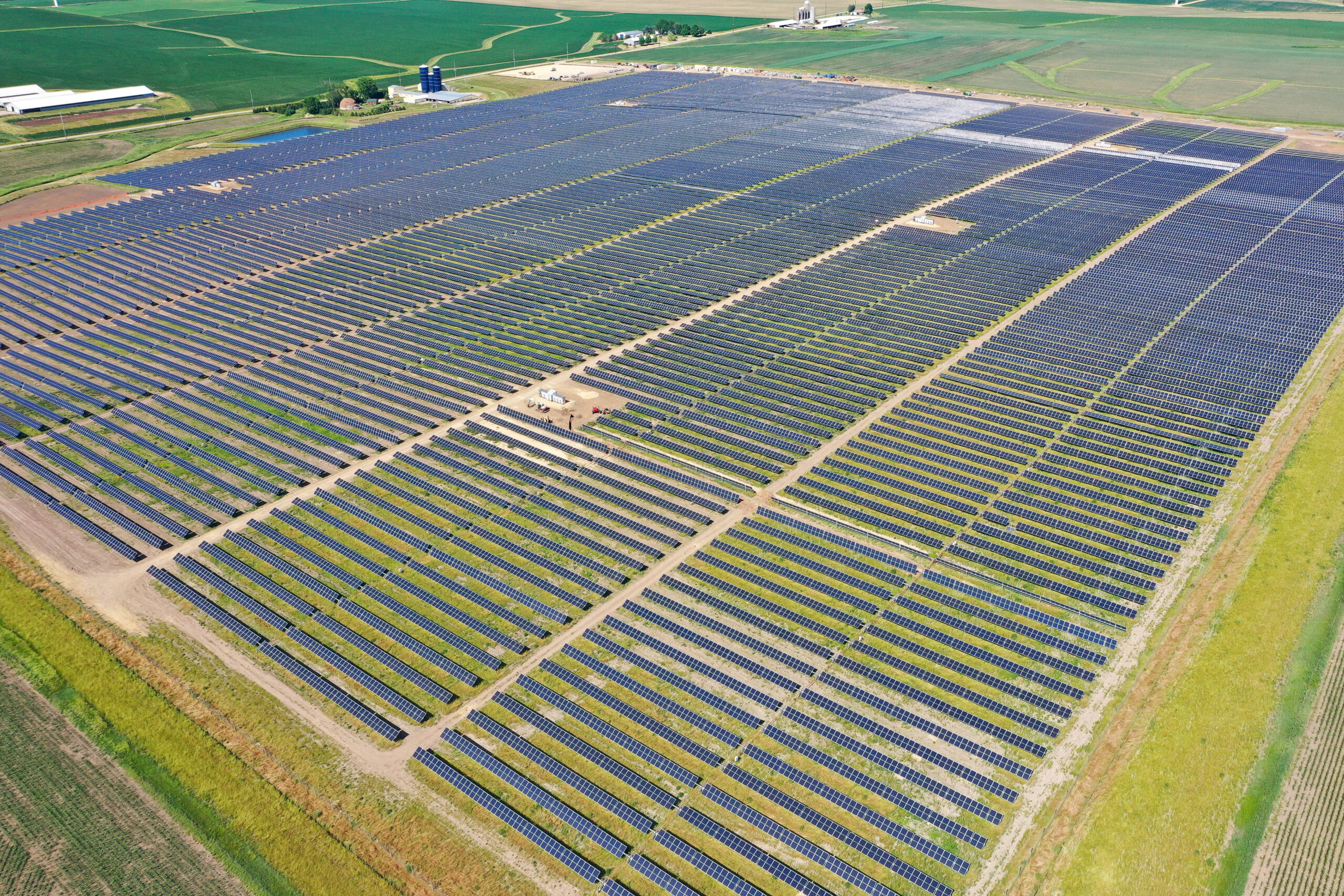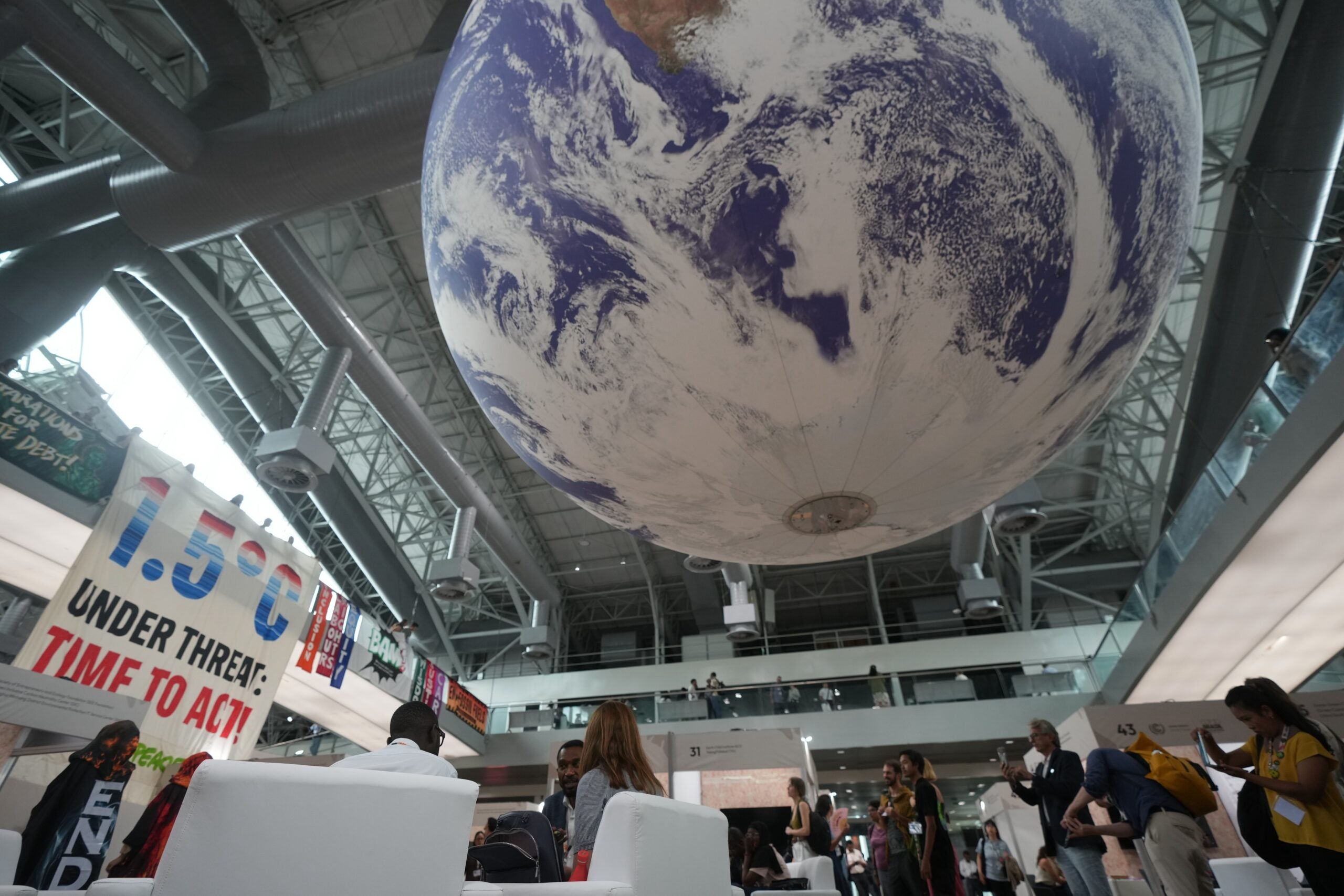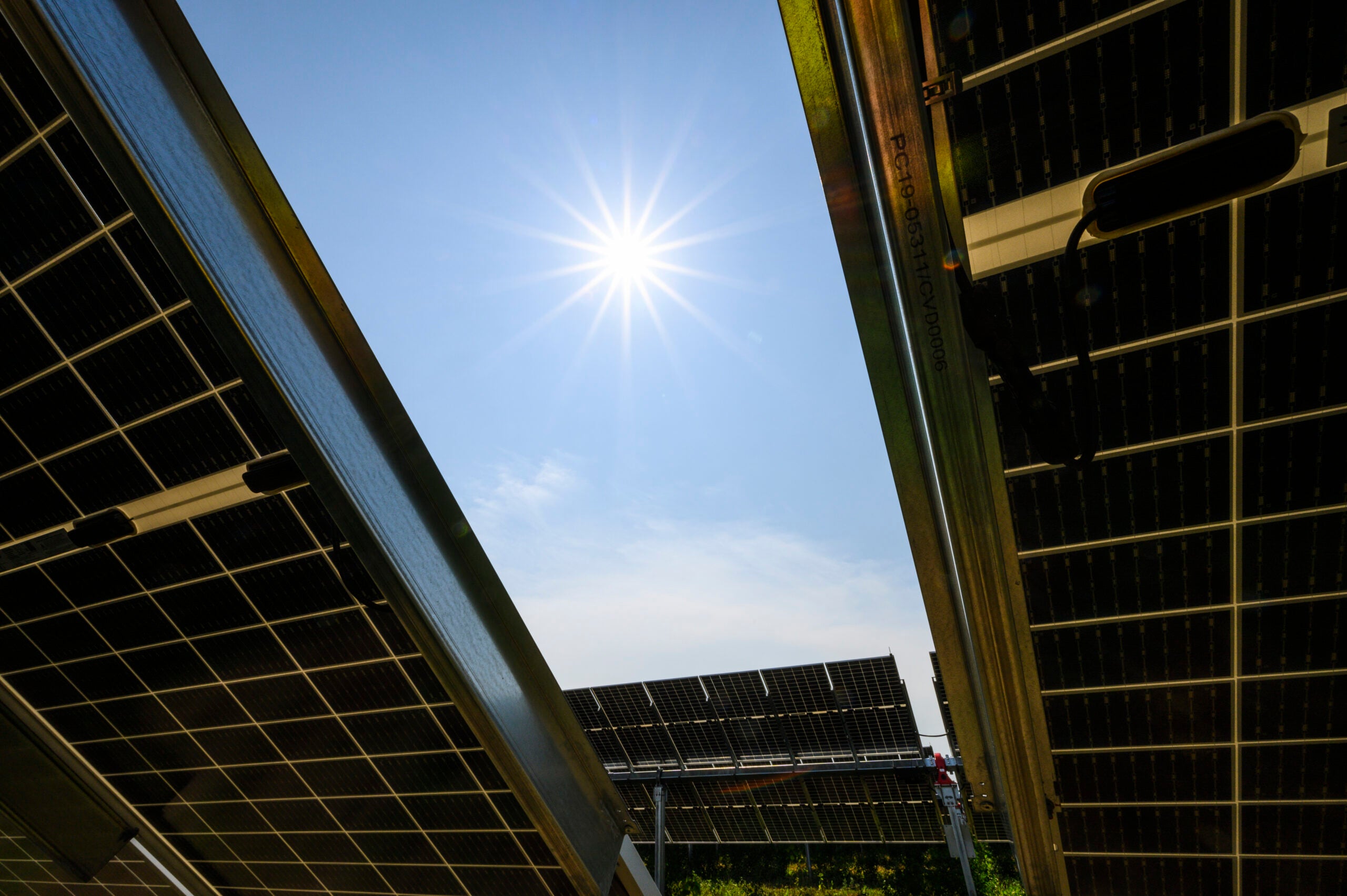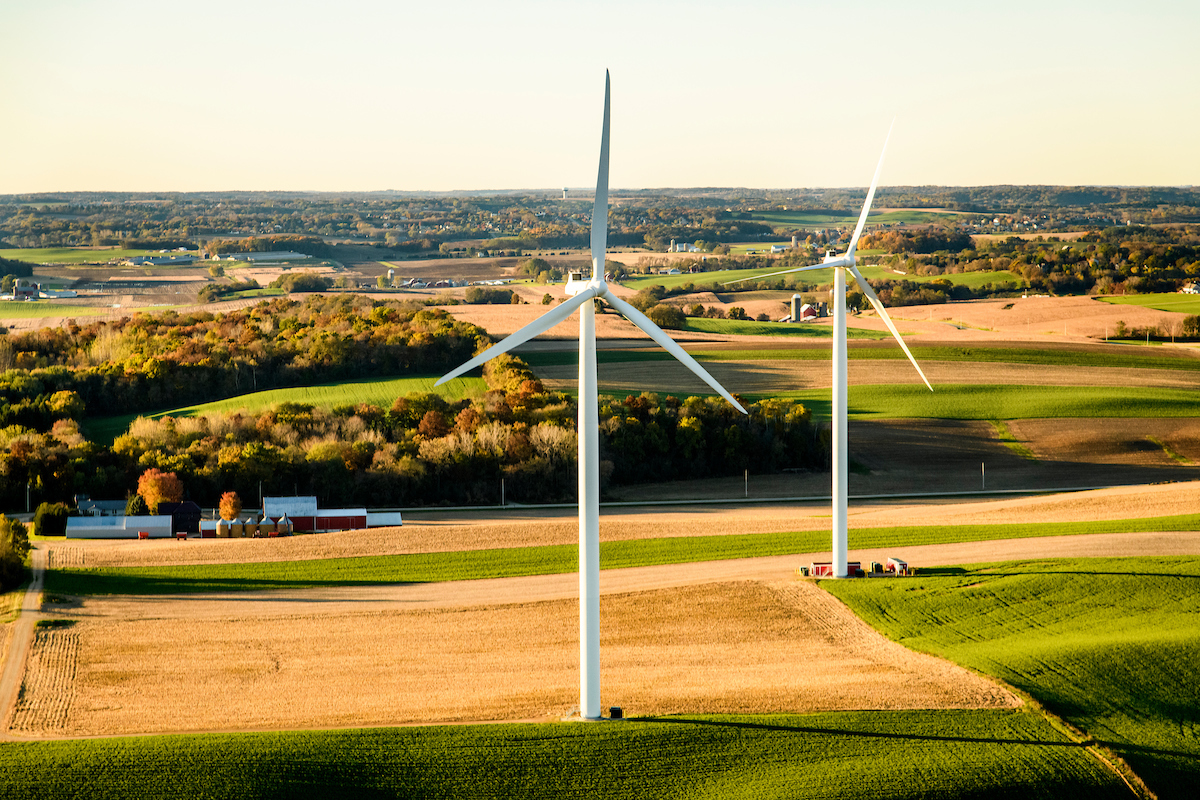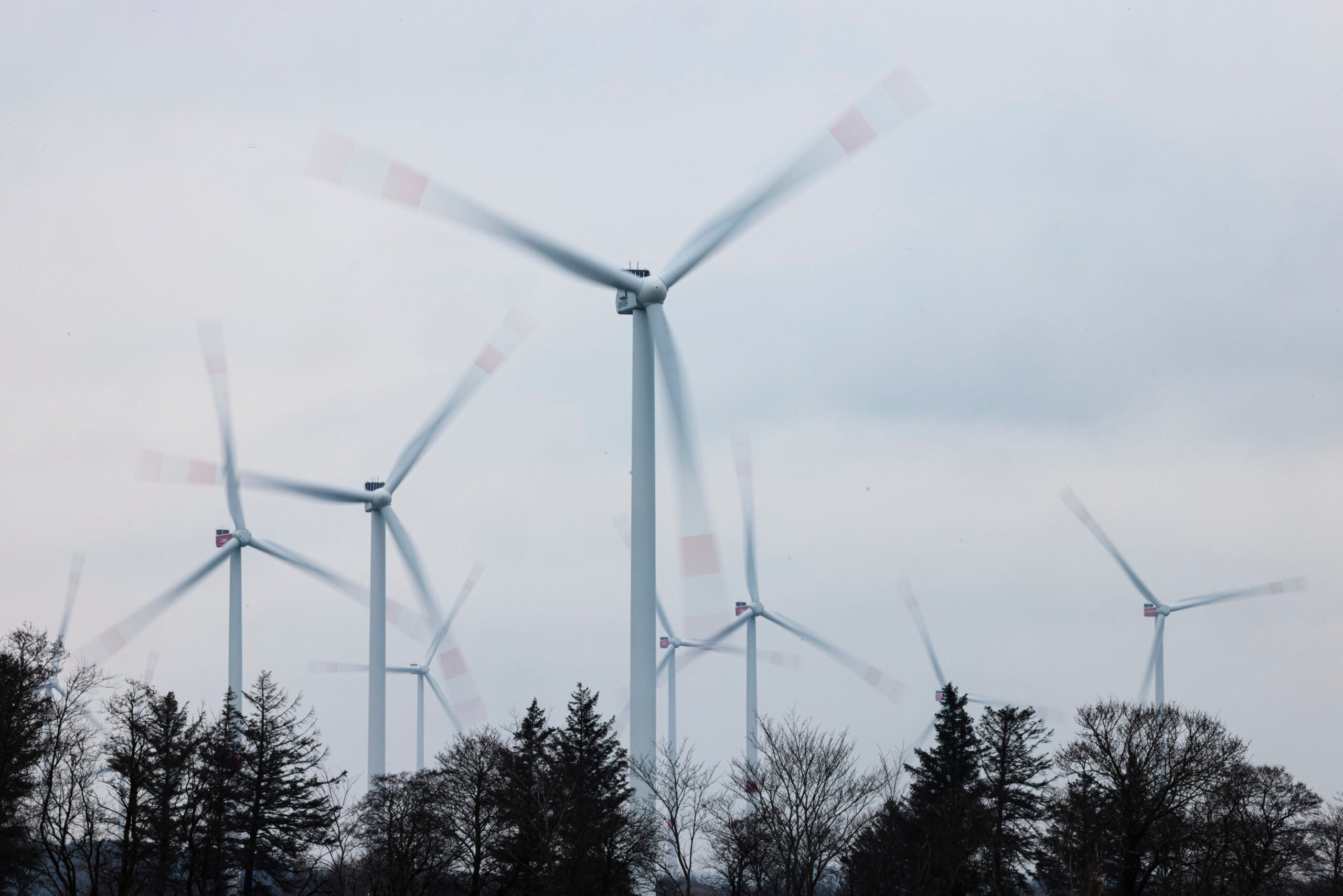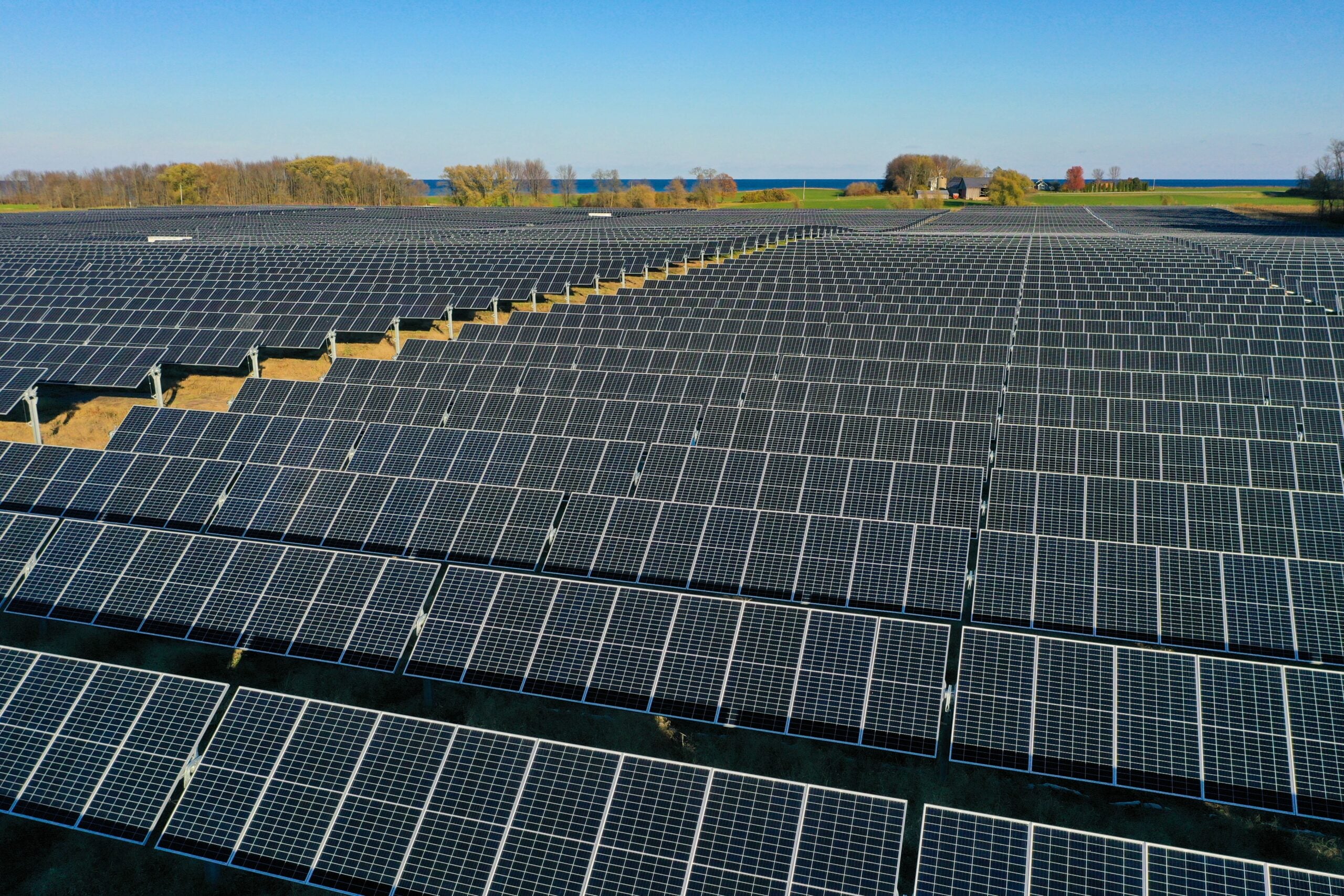Wisconsin energy experts say President-elect Donald Trump will slow reductions in greenhouse gas emissions to combat climate change and the shift to renewable energy, but not stop it entirely.
Trump, who has previously said global warming is a hoax, is likely to pull the nation out of the Paris climate agreement as he did during his first term. The accord aims to keep temperatures from rising beyond 1.5 degrees Celsius (2.7 degrees Fahrenheit) to stave off the worst effects of climate change.
Efforts to combat climate change and shift to renewable energy have accelerated under policies and regulations put in place by President Joe Biden’s administration. Even so, it hasn’t been enough to reach net-zero emissions by 2050, according to Greg Nemet, energy expert and public affairs professor at the University of Wisconsin-Madison.
“We’re on track, but we need to really start pushing harder to get the adoption of electric vehicles, solar panels, wind power, heat pumps and all those things at a faster rate,” Nemet said. “I think what we’re looking at now is probably almost definitely slowing down.”
Morgan Edwards, assistant professor of public affairs at UW-Madison, said the slowing of emissions reductions may not be immediately evident in Wisconsin as much as they will in the long run.
“We’re locking in long-term climate impacts that we’re going to see for decades to come,” Edwards said. “That’s things like more extreme weather events, warmer winters, more irregular farming seasons, which is a big deal across the country, but (also) in this state where we have a lot of agriculture.”
News with a little more humanity
WPR’s “Wisconsin Today” newsletter keeps you connected to the state you love without feeling overwhelmed. No paywall. No agenda. No corporate filter.
Climate scientists say those effects are already being felt in Wisconsin. While it may lock in more emissions, both Nemet and Edwards note momentum is on the side of clean energy as costs have come down on solar and wind power.
“These technologies are so much cheaper than they once were, and it’s becoming increasingly more cost-effective,” Edwards said.
The election of Trump comes as the world is set to see another record-hot year and global leaders are meeting for United Nations climate talks in Azerbaijan next week. Nemet, who will speak there about innovation in low carbon technology, said that stalls conversations on climate change. Edwards said climate finance is a big topic of discussion at the talks, adding the nation can expect no new investments in efforts to combat climate change.
Trump pledged to boost oil production, rescind IRA funds
On the campaign trail, Trump pledged to boost oil and gas production and indicated he will halt further funding under the Inflation Reduction Act, or IRA. The landmark climate law could cost up to $1.2 trillion over the next decade to implement climate and clean energy initiatives.
“My plan will terminate the Green New Deal, which I call the Green New Scam,” Trump said in reference to Biden’s climate policies at an event in September. “We will rescind all unspent funds under the misnamed Inflation Reduction Act.”
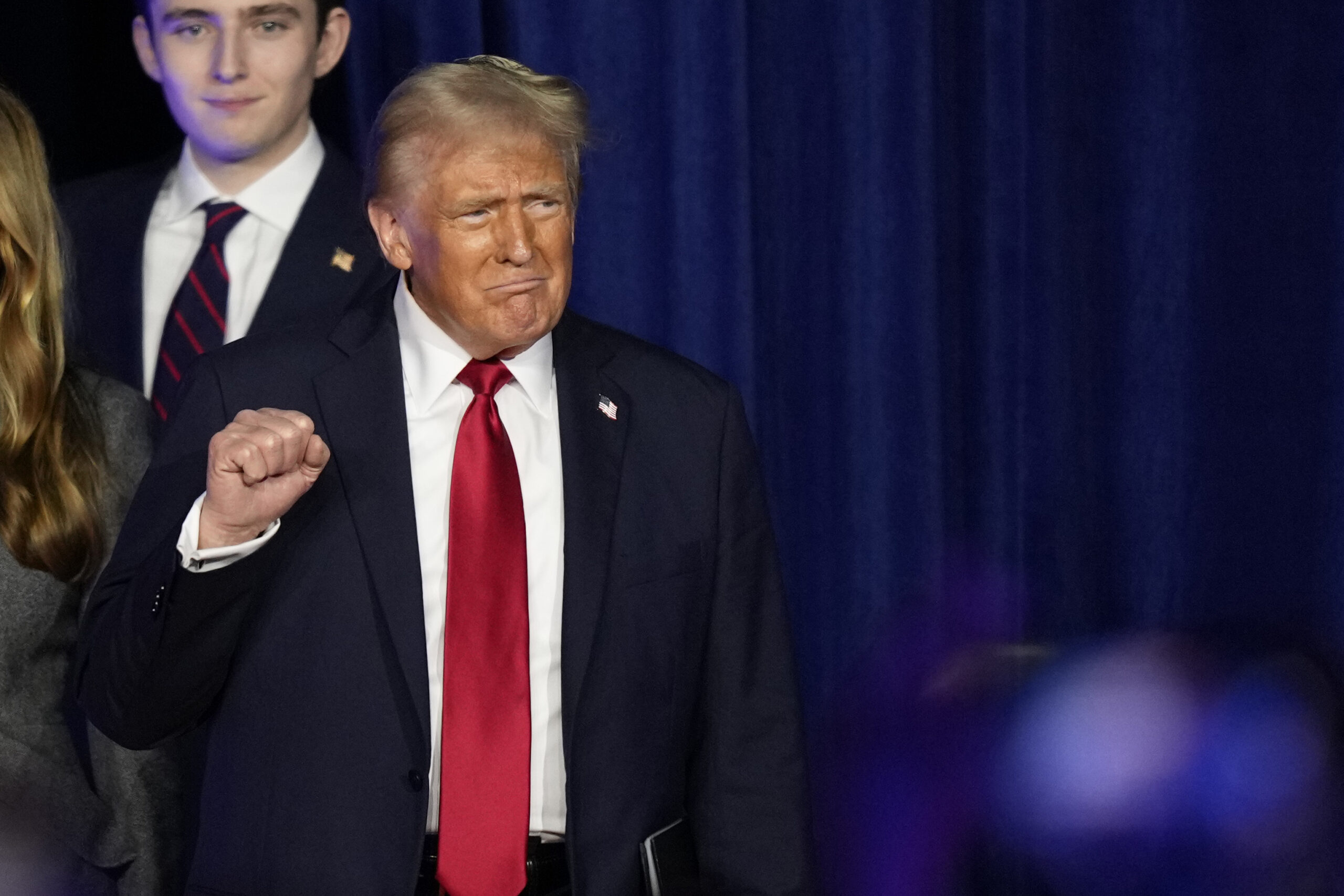
Brett Korte, staff attorney for Clean Wisconsin, noted one analysis estimates the landmark climate law has spurred more than $900 million of private investment in Wisconsin. That’s according to figures from Climate Power, which was co-founded by John Podesta, who serves as a senior adviser to the president on international climate policy. Korte added the state is set to receive $4 billion for large-scale power generation by 2030, supporting more than 73,000 workers in the state’s clean energy sector.
“By pulling the rug out from those investments, both in Wisconsin and across the country, I think could do quite a bit of harm,” Korte said.
Wisconsin added almost 2,200 clean energy jobs in the first full year of the law, according to Environmental Entrepreneurs, a nonpartisan business group. It conducted a survey of more than 900 businesses nationwide that found more than half said they would lose business if the law were repealed.
The group found more than 350 major projects have been announced nationwide since the law’s passage. Bob Keefe, the group’s executive director, said that includes companies like Ingeteam in Milwaukee that expected double the orders of wind turbine generators next year because of the law.
“If the IRA and these other policies roll back, people are going to lose jobs, businesses are going to close, and Wisconsin and the rest of America is going to be less competitive with the rest of the world that is clearly on a path to shifting to a cleaner economy,” Keefe said.
However, Edwards remains optimistic the law will remain intact due to funds flowing to Republican areas, noting some GOP lawmakers in Congress have urged against its repeal.
That doesn’t include members of Wisconsin’s Congressional delegation. Wisconsin Republicans in the U.S. House backed a resolution earlier this year that denounced the Biden administration’s energy policies as anti-American, saying they’ve made it more difficult for families and businesses to make ends meet.
Those policies include climate regulations that limit emissions from vehicles and power plants. Clean energy advocates say rolling back those rules would make it even harder to meet climate reduction goals and continue contributing pollution that harms nearby communities.
Wisconsin Public Radio, © Copyright 2025, Board of Regents of the University of Wisconsin System and Wisconsin Educational Communications Board.

